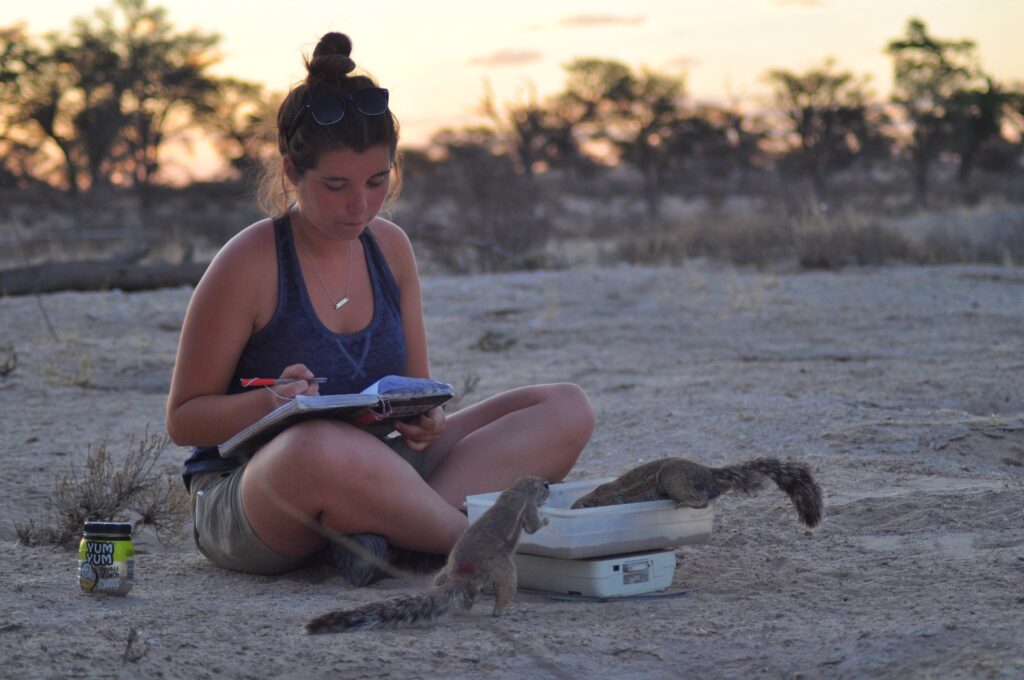
The influence of seasonality on Cape ground squirrel group behaviour
Department of Evolutionary Biology and Environmental Studies, University of Zurich
Contact: Katherine.fegan@ieu.uzh.ch
Animals capability to change their behaviour as a result to the changing in seasons has been documented as a novel adaptation to survive in extreme and unpredictable environments. The Cape ground squirrel is found to live in group clusters that can range in size of 3-36 members and interact in series of both amicable and non-amicable behaviours with one another. Due to the fact that the Cape ground squirrel is a social, group living rodent which does not hibernate, there has been little research done towards how different seasons can affect interactions between members within a group. Cape ground squirrels have also been recorded to move between known burrow clusters which has little research done towards what could be influencing group movements. My analysis will focus on using long term data from the Cape ground squirrel project and drone image analysis. I will be analyzing how the changing of seasons could be affecting what type of interactions are seen between members of known groups and if the changing of seasons has an influence on group movements between known burrow clusters.

